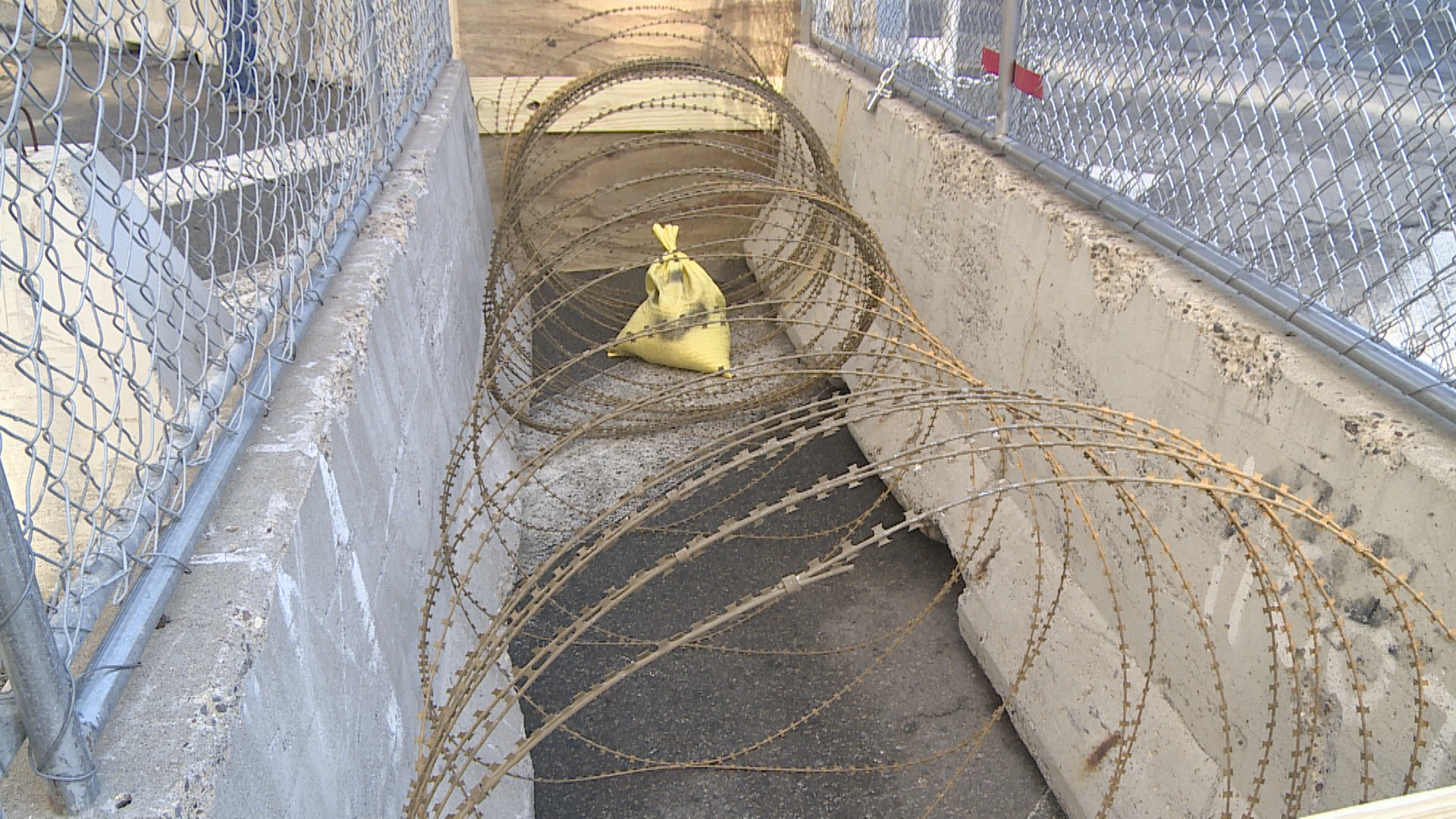A week away from the start of the trial. The city of Minneapolis has turned the county courthouse into a better fortified location than no man's land near the Berlin Wall.

Prior to Floyd being restrained on the ground. Let that sink in. But there's more.

Quote:
According to KARE11 News, "The area around the Hennepin County Courthouse is starting to look like a war zone now that the [courthouse] plaza is surrounded by metal fencing and concrete barriers."
Now to something of which I was unaware. Prosecutors very quietly finally handed over a 302 on the Hennepin County Medical Examiner. The contents are quite damning for the prosecution and explain why they took so long to finally provide to the defense.Quote:
KARE11 also reports that, a few blocks away from the courthouse, the Hennepin County jail has been heavily fortified and more security measures will be put in place. These include fortification of police precincts and patrols throughout the city by the Minnesota National Guard, which, according to Minneapolis Deputy Police Chief Erick Fors, will provide "a presence and a deterrence in key business corridors."
The Minneapolis Department of Economic Policy and Development has issued "new guidance" for business owners who "may be concerned" about security during the trial. The Department's Director Erik Hansen stated that they are not recommending that business owners board up windows and doors, but that is an option they can consider: The Department has encouraged businesses to "check in with their insurance companies" and "really go into their policies and what is covered."
Quote:
More importantly, despite its legal obligation to timely provide the defense with exculpatory evidence, the prosecution delayed production of a devastating FBI 302 report (linked to here) of a July 8, 2020, interview of Hennepin County Medical Examiner Andrew Baker regarding Floyd's autopsy. The prosecution didn't cough up this 302 until October 28, 2020, at which time the defense learned that, in the 302,
Dr. Baker "defined the mechanism of death as Floyd's heart and lungs stopping due to the combined effects of his health problems as well as the exertion and restraint involved in Floyd's interaction with police prior to being on the ground" (emphasis added).
Prior to Floyd being restrained on the ground. Let that sink in. But there's more.
LINKQuote:
Here are some other quotations from the Baker 302:There's more, but you get the idea. No wonder the prosecution was reluctant to produce Dr. Baker's 302. One is left to wonder at the size of the laundry bill for the prosecutors' underpants after it landed in their inbox.
- Baker could not provide an answer if "but for" the actions of the officers would Floyd have lived. Baker could not predict what would have occurred. Baker did not know if Floyd would have lived but for the officer's [sic] actions.
- Baker did believe that because of Floyd's heart disease and intoxicants, the stress from the events that occurred with Minneapolis police officers was more than Floyd could tolerate.
- Floyd's heart was larger than it should be. There was no evidence that Floyd's airway was literally blocked shut. When viewing the body camera footage, the pressure did not appear to be directly over Floyd's airway. Floyd would have been unable to speak if pressure was directly over his airway.
- Officer Chauvin's positioning on Floyd's body does not fit anatomically with occluding Floyd's airway.
- The absence of petechiae weighs against strangulation. Petechiae occurs [sic] due to vascular occlusion that causes blood vessels to rupture.
- The struggle between officers and Floyd weighed into Baker's opinion because physical exertion increases heart rate, releases adrenaline, and increases respiratory rate as well as cardiac demand. All off these things increased the likelihood of a bad outcome.
- Fentanyl may cause pulmonary edema in some individuals. Evidence of pulmonary edema was found during Floyd's autopsy. This evidence was that Floyd's lungs were heavy compared to normal lungs. Additionally, Floyd's lungs were were diffusely edematous. Baker defined edematous as "full of fluid."
Quote:
Mob law does not become due process of law by securing the assent of a terrorized jury.
Justice Oliver Wendell Holmes, dissent in the appeal of Leo Frank, April 19, 1915








